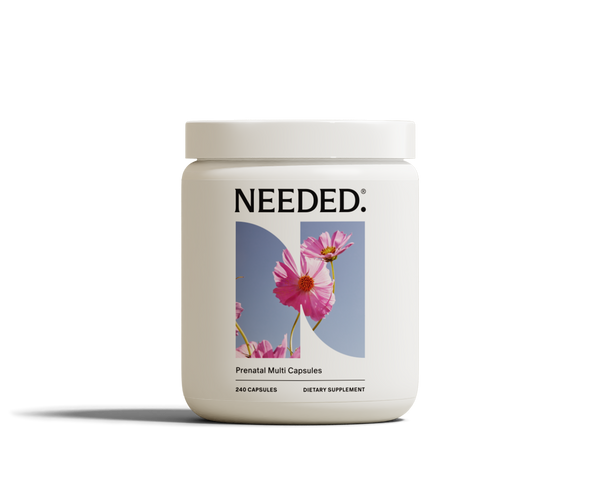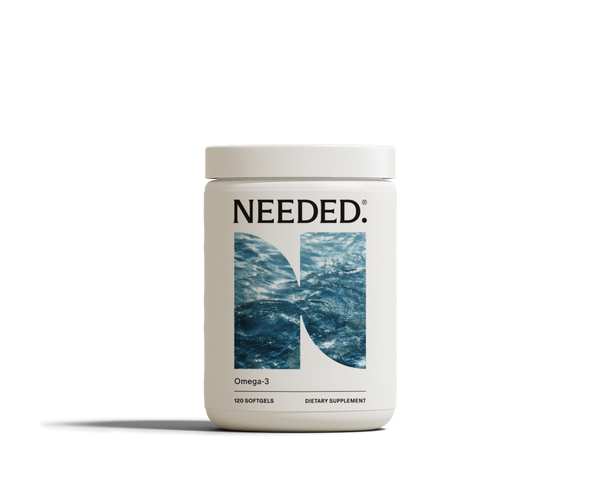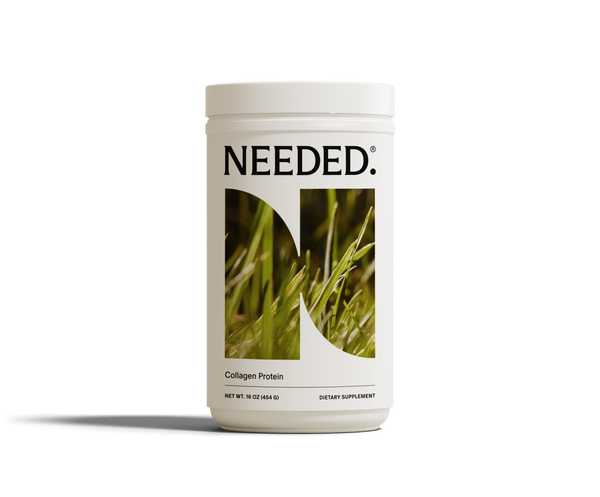Breastfeeding Myths: 10 Questions New Moms Ask Most
Movies and TV make breastfeeding seem intuitive and easy, but any mom will tell you, nothing could be further from the truth. Breastfeeding can feel like one big mystery, and everyone seems to have an opinion.
There are a lot of myths, half-truths and outdated information out there. If you're pregnant and planning to breastfeed, or you're in the thick of cluster feeds and cracked nipples, you're not alone in wondering what’s fact and what’s fiction. And you may be too nervous to ask.
We’re going to tackle 10 questions every mom has had at one point: the awkward, confusing, and often misunderstood stuff no one tells you. Supply, pain levels, latching, and dieting, we’re helping clear up breastfeeding myths and sharing real answers rooted in science and experience.
Let’s bust the myths, ease the guilt, and help you make the best choices for you and your baby.
1. Does Breastfeeding Really Hurt at First?
Yes, it’s normal for breastfeeding to initially have some discomfort; though how much and for how long depend on several factors. But that pain usually signals something fixable, not something you just have to grit through.
What’s normal and what’s not
Close to 70% of breastfeeding mothers reported pain, and considered stopping breastfeeding earlier than they wanted to because of it, primarily due to a poor latch. The pain typically peaks around postpartum days 3–7 and then subsides with time and practice.
Persistent or severe pain after a week isn’t normal, and you should make an appointment with your healthcare provider or a lactation consultant.
How to make it more comfortable
Since poor latch and lack of nipple care are the primary culprits of breastfeeding pain, here are a few tips to help:
- Learning a deep latch is your first line of defense: Make sure the baby's mouth opens wide, covering most of the areola, with the chin pressed in and the nose away from the breast. This positioning promotes efficient milk transfer and reduces friction.
- Heat Therapy: Try a warm compress before feeding to ease engorged tissue, or a cold pack afterward to reduce swelling and tenderness
- Up your nipple care routine: Lanolin or hydrogel pads help heal fissures; expressing a little breast milk and applying it to the nipple afterward offers soothing, natural moisture.
2. How do I Know if my Baby is Getting Enough Milk?
This question keeps a lot of new moms up at night, literally. You feed your baby, they cry 20 minutes later, and suddenly you’re spiraling: Do I have enough milk? Am I doing this right?
Let’s clear it up: crying or frequent feeding does not mean you’re not producing enough. Babies breastfeed for more than just hunger; it can also be for comfort or a sense of connection.
Signs of adequate intake
How can you tell if your baby is getting enough breast milk? The signs are pretty simple:
- Consistent wet diapers: Expect six or more wet diapers per day after the first few days.
- Weight gain: Most babies regain their birth weight by 10–14 days and continue to gain steadily thereafter.
- Alertness and feeding cues: A content, alert baby between feeds is a good sign.
If you are seeing the above signs, your baby is likely well-fed, even if they want to nurse more often than other babies do.
Why Babies Cluster Feed (And Why It's OK)
When your baby has growth spurts (which will happen a couple of times over the first 12 weeks), your baby might feed every hour. This is known as cluster feeding, and it’s normal.
Breast milk operates on a supply-and-demand principle. When baby feeds more often, your body gets the message: make more milk. It’s not a sign that you weren’t making enough, so trust your body and your baby.
3. Can I Breastfeed if I Have Small Breasts or Flat/Inverted Nipples?
Yes, absolutely. Breast size or nipple shape has nothing to do with your ability to breastfeed. However, thanks to outdated advice and social myths, it’s no wonder that many new moms are still concerned.
Since fatty tissue, and not milk-making glandular tissue, determines breast size, you can produce just as much milk as someone with a larger cup size. What really matters is milk removal, so rather than focusing on breast size, concentrate on feeding frequency and latch.
The Truth About Inverted Nipple Breastfeeding
If your nipples are flat or inverted, latching may be more challenging at first, but you can still successfully breastfeed. Remember, when a baby latches, they draw in the areola and surrounding breast tissue.
If your baby struggles to latch with inverted or flat nipples:
- Try nipple stimulation before feeding
- Use reverse pressure softening or breast shaping techniques
- Try an inverted nipple breastfeeding shield (with lactation consultant guidance)
4. Is it True That I can’t breastfeed if I’m Sick or Taking Medication?
This is probably the most asked question for new (and experienced) breastfeeding moms: “What cold medicine can I take while breastfeeding?” In most cases, if you’re sick, you won’t have to stop breastfeeding, and most medications are safe.
It actually may be more beneficial to continue breastfeeding while sick. Your body makes antibodies when you're sick, and those protective antibodies pass into your breast milk, helping shield your baby from the same illness.
Unless you’re dealing with a severe infection that impacts your body’s ability to create antibodies (i.e., HIV or active tuberculosis), common colds, fevers, or stomach bugs are not reasons to stop nursing.
Where to check medication safety
That said, always double-check using a searchable database like the NIH's LactMed. You can look up any medication and see how much passes into breast milk and whether there are safer alternatives.
5. Will Breastfeeding Really Help me Lose Weight?
It’s an age-old wives' tale that breastfeeding can help you lose weight, but it's not entirely without merit. Yes, some women may lose weight, but what they don’t tell you is that breastfeeding also makes you hungrier. For many moms, this increased appetite balances out the calorie burn. And that’s OK.
What The Science Says
Breastfeeding can burn around 300 to 500 extra calories a day, depending on your baby’s age and how often they feed. So yes, in theory, it can support gradual postpartum weight loss. In one study, women who exclusively breastfed saw a slight increase in postpartum weight loss after three months.
So the net/net is: You may lose a bit of weight, but you’ll also probably eat more during this time.
6. Can I Still Get Pregnant While Breastfeeding?
The short answer is yes, you can still get pregnant while breastfeeding. When you’re breastfeeding, your hormones, prolactin and oxytocin, work together to suppress ovulation. However, it’s not a foolproof method of contraception.
Lactational Amenorrhea Method (LAM)
Breastfeeding can delay the return of your period, a phase called lactational amenorrhea. Exclusive breastfeeding, meaning your baby nurses at least every 4 hours during the day and every 6 hours at night, with no formula or solids, can suppress ovulation in the first six months postpartum.
LAM is considered about 97% effective, as long as you’re exclusively breastfeeding. The effectiveness drops if you are supplementing with formula or solid foods.
So, when will your period return? It depends on the individual; some resume within a few weeks, some take months. If avoiding pregnancy is important, talk to your OB-GYN about breastfeeding-safe contraception options, like mini-pills or IUDs.
7. What Foods or Drinks Should I Avoid While Breastfeeding?
No, you don’t need a special breastfeeding diet. Most foods are safe while breastfeeding, although there are a few considerations for optimal lactation nutrition. These are:
- Smoking or Alcohol: Completely avoid as long as you are breastfeeding. Some believe that moderate use (up to 1 drink) is ok. We recommend consulting with your doctor before taking that step.
- Caffeine: Up to 300 mg per day (about 1–2 cups of coffee) is generally safe
- Sugar: Definitely limit your sugar intake, and if you dealt with gestational diabetes, work closely with your healthcare provider on what’s considered a safe amount
There’s no such thing as a “perfect breastfeeding diet.” Your breast milk is remarkably consistent and nutrient-rich, even if your own meals aren’t flawless. Unless your baby has a food allergy, you don’t need to eliminate entire food groups.
What’s Most Important is a Balanced Diet for Breastfeeding Moms
You don’t need a strict diet, per se, but a balanced diet with lots of hydration can support your milk quality and quantity. It will also support your postpartum recovery.
Our bodies are remarkably designed, allowing breastmilk to contain the nutrients they need, regardless of our diet. However, if you’re not taking care of yourself, that could leave you depleted. That’s why we recommend continuing with a high-quality postnatal supplement.
Needed’s prenatal is 100% safe to continue taking after you’ve had your baby.
8. Is it OK to Supplement With Formula or Pumped Milk?
Of course, it’s 100% ok. It doesn’t matter to add pumped breast milk, formula, or a mix of both. Let’s be clear: combo feeding is a valid and healthy way to feed your baby and never a sign of failure.
It’s a myth that combo feeding will ruin your milk supply or bond. Yes, milk production is based on supply and demand, but you can still maintain your supply and bond with your baby through occasional supplementation and regular nursing or pumping.
Tips for Successful Mixed Feeding
- Start slow if introducing formula or bottles, as your baby may need time to adjust.
- Use paced bottle feeding to mimic breastfeeding and avoid preference issues.
- Try to pump when baby takes a bottle to maintain supply, and try to establish a routine.
9. Do I Have to Breastfeed for a Full Year (or Longer)?
The World Health Organization (WHO) and the American Academy of Pediatrics (AAP) both support extended breastfeeding (at least 6 months of exclusive breastfeeding, then continued with solids for 12 more months or longer).
It is with good reason: Breast milk continues to provide immune support, nutrients, and emotional comfort well beyond infancy.
What they don’t say is you’re not a failure if you choose to stop earlier.
H3: WHO and AAP Recommendations
Both the WHO and AAP recommendations state that “if mutually desired,” which means that extended breastfeeding should take into account your mental, emotional, and physical well-being.
As long as your baby is fed, loved and thriving, you’re doing a good job. Don't let guilt shape your journey. You get to decide what works best for your body, your baby, and your life.
10. What if I Just Don’t Want to Breastfeed?
Breastfeeding isn’t the right choice for every new mother. And that’s ok. That doesn’t make you selfish, unloving, or a bad mom. It makes you human.
The power of Informed Choice
Yes, breastfeeding has benefits. But so does feeding your baby in a way that protects your mental health, supports your family’s needs, and lets you show up as your best self.
There are many reasons a mom might choose not to breastfeed:
- Past trauma
- Postpartum mental health
- Medical conditions
- Returning to work
- It just doesn’t feel right
All of those reasons are valid. If you're struggling with guilt, know this: your worth is not tied to how you feed your baby. What matters is the bond you build, the comfort you give, and the care you offer every day.
This is YOUR Breastfeeding Journey
Breastfeeding comes with questions, pressure, and lots of myths, but it doesn’t have to come with guilt. Whether you're nursing around the clock, combo feeding, or choosing formula from day one, the best approach is the one that works for you and your baby.
And know it’s ok to ask for help. If you’re struggling or unsure, consider consulting a lactation consultant, pediatrician, or a supportive parent group.
Trust your instincts, ask questions, and remember: feeding your baby is an act of love, no matter how you do it.
Breastfeeding Myths FAQ
Does Breastfeeding Really Hurt at First?
Some tenderness is normal at first, but ongoing pain usually indicates that you need to adjust the latch or position.
How Do I Know if My Baby Is Getting Enough Milk?
If your baby has plenty of wet diapers, gains weight, and seems alert, they’re likely getting enough milk.
Is it True That I can’t breastfeed if I’m Sick or Taking Medication?
In most cases, breastfeeding while sick or on common medications is safe and even beneficial.
Will Breastfeeding Really Help me Lose Weight?
Breastfeeding can support gradual weight loss, but the results vary and often depend on factors such as appetite, diet, and physical activity.
Can I Breastfeed if I Have Small Breasts or Flat/Inverted Nipples?
Yes, breast size and nipple shape don’t determine your ability to breastfeed successfully.
Can I Still Get Pregnant While Breastfeeding?
Yes, while breastfeeding can delay fertility, it’s not a guaranteed form of birth control.
What Foods or Drinks Should I Avoid While Breastfeeding?
Most foods and drinks are safe while breastfeeding, including caffeine and spicy foods, unless your baby shows signs of sensitivity (i.e., rash, excessive gassiness, etc.). Speak with your provider if that is the case.
Is It Okay to Supplement with Formula or Pumped Milk?
Yes, supplementing with formula or pumped breast milk is a valid and healthy way to feed your baby.
Do I have to breastfeed for a whole year (or longer)?]
Experts recommend extended breastfeeding, but you can stop whenever it feels right for you. There’s no one-size-fits-all timeline.
What if I Just Don’t Want to Breastfeed?
That is perfectly ok. As long as your baby is nourished, loved, safe and happy, you’re doing a good job.
















